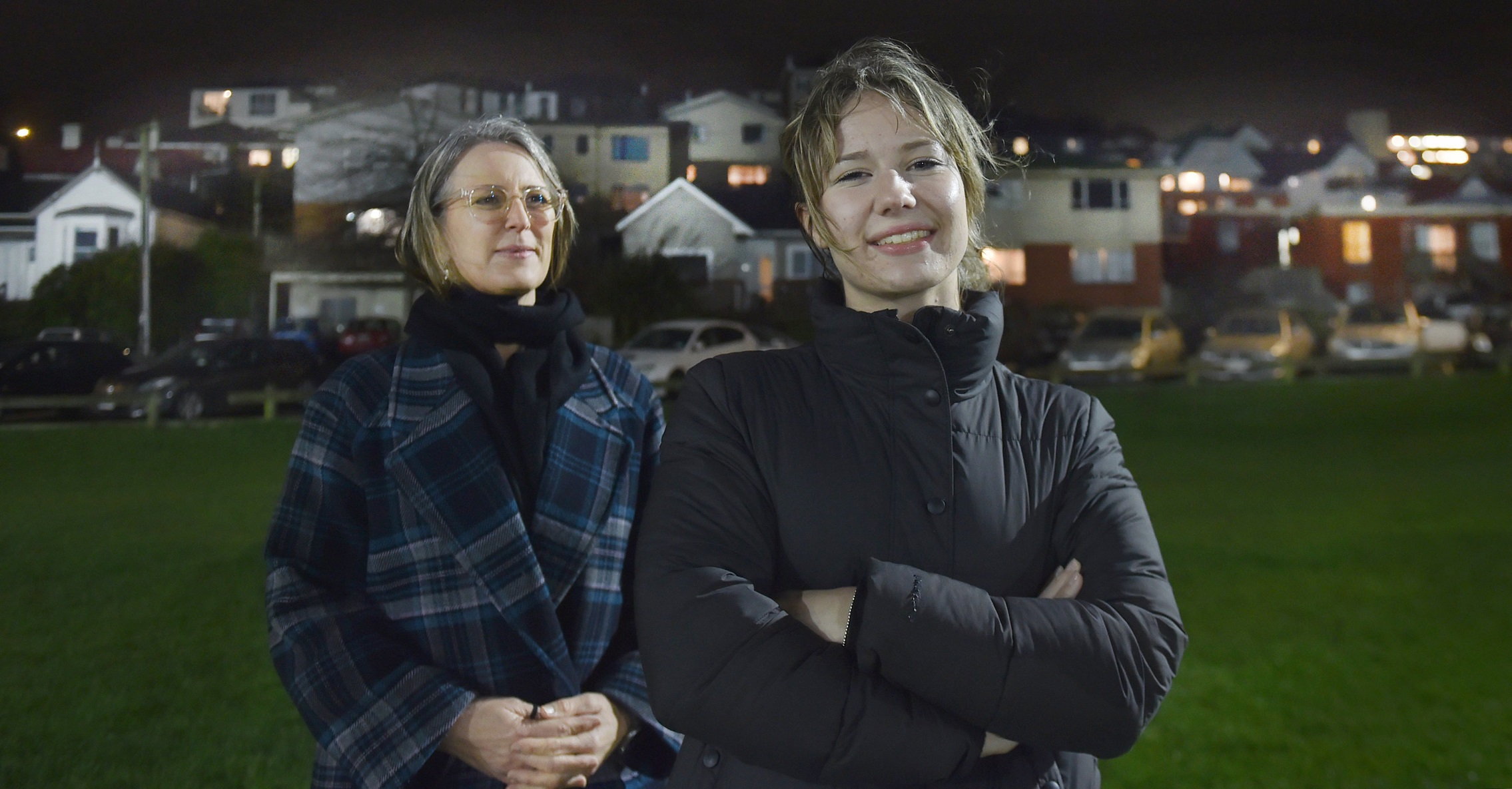Speaking in the public forum at yesterday’s Dunedin City Council meeting, University of Otago student Zoe Eckhoff spoke about the toll being forced to remain in a tenancy with an unfit house and "abusive landlord" had had on her, her flatmates and their families.
"We paid over five grand for a house we never lived in; we lost study time and faced serious stress and trauma," Miss Eckhoff told councillors.
"All we wanted was a safe, lawful and respectful tenancy and, instead, we were exploited by our landlord and let down by a system that’s supposed to protect us."
Miss Eckhoff was joined by her mother Pip Eckhoff and a flatmate’s mother, Amanda Dyer.
Mrs Eckhoff said her daughter’s experience indicated a "broader, systemic failure in Dunedin’s housing landscape".
"The problems of declining houses and slumlords’ exploitation continues because compliance enforcement relies almost solely on vulnerable tenants and a flawed tribunal process."
The city council should expand its capacity to provide independent house condition reports which would help prospective tenants inspect properties, settle disputes and construct a history on problem landlords.
Speaking to the Otago Daily Times after the meeting, Miss Eckhoff said properties around the university were normalised as the "Otago student flatting experience".
"That ‘experience’ is damp, cold, mouldy flats that leave them feeling, quite literally, ill and powerless. That’s when it crosses a line," she said.
"Yes, there are good landlords and bad tenants, no doubt about it.
"But especially for the good landlords out there, this should be something they care about just as much because these bad landlords taint their reputation and draw young people away from Dunedin.
"Would you want your kids moving into an unsafe flat that’s cold, damp, mouldy and unfit for purpose?" she asked.

In May, the ODT reported on Miss Eckhoff and two of her close friends, who last year had signed a year-long fixed-term lease for a Queen St property set to be their first flat.
However, the tenants soured on the property after they inspected it in late January and discovered vegetation choking gutters, black mould and grease in vents and windows, curtains covered with black mould, rubbish strewn throughout the property, borer dust throughout wooden fittings, peeling lead paint in soffits and broken gutters.
Only after taking their landlord to the Tenancy Tribunal and subsequent mediation were Miss Eckhoff and her fellow tenants able to end the tenancy.
At the meeting, councillors agreed to write to the Ministry of Business, Innovation and Employment (MBIE) requesting with urgency its planned approach to monitoring and enforcement of Healthy Homes regulations, which came into effect on July 1, to ensure Dunedin fixed-term tenancies beginning in January 2026 were compliant.
Cr Marie Laufiso, who introduced the motion, said it was the "least" the council could do.
Otago Housing Alliance lead and former mayor Aaron Hawkins spoke in the public forum supporting the motion and said, after the homeless community, renters were some of the most vulnerable in Dunedin.
The motion passed 11-1. Cr Lee Vandervis was opposed and Cr Carmen Houlahan declared a conflict of interest.
MBIE head of tenancy Kat Watson said in May and June that the ministry’s tenancy compliance and investigations team checked 55 student rentals in Dunedin for compliance.
"Almost all tenants moved in and there were problems straight away," she said.
"These were sorted quite quickly but the theme appeared to be that the landlord was not ensuring that the properties were up to standard at the commencement of the tenancies."
Three of the 55 properties had serious maintenance issues and breaches of most of the Healthy Homes Standards.
Ms Watson said various tools were used to ensure landlords met their obligations, including formal warnings, enforceable undertakings, infringement notices and "in the most serious cases" proceedings in the Tenancy Tribunal.












